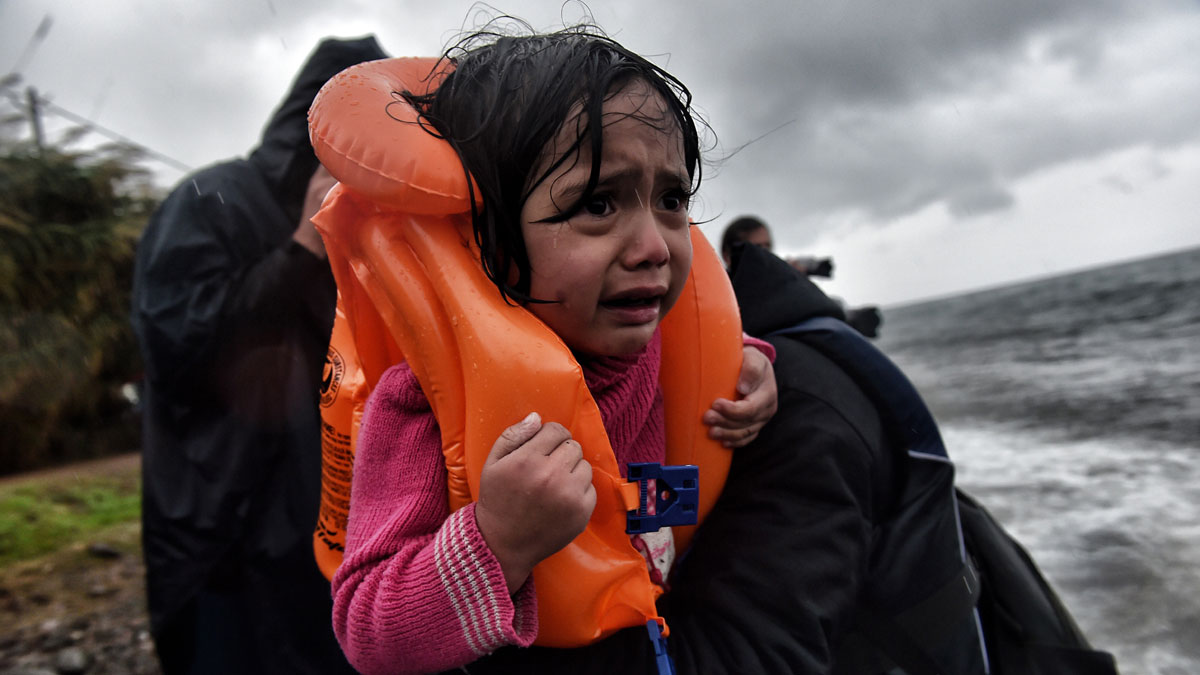EU migration summit: why can’t a deal be struck?
Several proposals are on the table but the bloc remains deeply divided over how to solve the crisis

A free daily email with the biggest news stories of the day – and the best features from TheWeek.com
You are now subscribed
Your newsletter sign-up was successful
European leaders are gathering in Brussels today for yet another summit focused on resolving the migrant crisis - but there appears to be little hope a deal can be reached.
Although the number of refugees and migrants arriving in Europe has dropped dramatically since 2015, the issue remains deeply divisive.
The two-day meeting, which will also address eurozone reform, promises to be “one of the most difficult the bloc has held for many years” says Tony Barber, Europe editor at the Financial Times.
The Week
Escape your echo chamber. Get the facts behind the news, plus analysis from multiple perspectives.

Sign up for The Week's Free Newsletters
From our morning news briefing to a weekly Good News Newsletter, get the best of The Week delivered directly to your inbox.
From our morning news briefing to a weekly Good News Newsletter, get the best of The Week delivered directly to your inbox.
What solutions are being suggested?
The EU Commission has proposed setting up “regional disembarkation platforms” in North Africa, where agencies could screen those who have a genuine claim to asylum in Europe, the BBC reports.
“Those not eligible would be offered help to resettle in their home countries,” it says.
This has been backed by France and Italy, but Human Rights Watch has condemned the plan, warning that it would deflect responsibility onto countries outside the EU with less capacity to process claims and protect refugees and migrants.
A free daily email with the biggest news stories of the day – and the best features from TheWeek.com
EU leaders “should be guided by the compass of rights and firmly reject offshore processing, which Australia has shown to be a recipe for abuse and despair,” says Judith Sunderland, the organisation’s associate Europe and Central Asia director.
The group proposes setting up a regional disembarkation agreement among EU countries instead, where fair and humane treatment for all migrants would be guaranteed.
Meanwhile, Giuseppe Conte, Italy’s prime minister and head of the new populist, anti-immigration government, has gone even further by calling for the Dublin regulation to be overhauled.
Under the current law, asylum seekers must be registered in the EU country in which they arrive, which critics claim places an unfair burden on southern European countries.
Conte’s government has effectively closed its ports to foreign ships carrying refugees and migrants, leaving them stranded at sea until other EU states have agreed to accept them.
Why do divisions run so deep?
There is huge disagreement among member states over how much responsibility each nation should take for migrants and refugees.
Germany – and to a certain extent France and Spain - are seeking a Europe-wide solution that protects Europe’s Schengen passport-free zone and the Dublin regulation, The Guardian reports. “Italy, however, is unlikely to play ball: the last thing [it] wants is to take migrants back who have already left.”
The debate is further complicated by Hungary, Poland, the Czech Republic and Slovakia, which have refused to take in asylum seekers under any EU plan and want “no more discussion of such schemes,” the newspaper adds.
Experts agree that any agreement beyond simply increasing border patrols appears highly unlikely.
“This issue is once again showing the weakness of the EU when it comes to sensible, common decisions to take in the field of security, solidarity and cooperation versus national interest,” Stefano Torelli, a researcher at the Institute for International Political Studies in Milan, told Al Jazeera.
-
 5 cinematic cartoons about Bezos betting big on 'Melania'
5 cinematic cartoons about Bezos betting big on 'Melania'Cartoons Artists take on a girlboss, a fetching newspaper, and more
-
 The fall of the generals: China’s military purge
The fall of the generals: China’s military purgeIn the Spotlight Xi Jinping’s extraordinary removal of senior general proves that no-one is safe from anti-corruption drive that has investigated millions
-
 Why the Gorton and Denton by-election is a ‘Frankenstein’s monster’
Why the Gorton and Denton by-election is a ‘Frankenstein’s monster’Talking Point Reform and the Greens have the Labour seat in their sights, but the constituency’s complex demographics make messaging tricky
-
 Epstein files topple law CEO, roil UK government
Epstein files topple law CEO, roil UK governmentSpeed Read Peter Mandelson, Britain’s former ambassador to the US, is caught up in the scandal
-
 Iran and US prepare to meet after skirmishes
Iran and US prepare to meet after skirmishesSpeed Read The incident comes amid heightened tensions in the Middle East
-
 Grok in the crosshairs as EU launches deepfake porn probe
Grok in the crosshairs as EU launches deepfake porn probeIN THE SPOTLIGHT The European Union has officially begun investigating Elon Musk’s proprietary AI, as regulators zero in on Grok’s porn problem and its impact continent-wide
-
 Israel retrieves final hostage’s body from Gaza
Israel retrieves final hostage’s body from GazaSpeed Read The 24-year-old police officer was killed during the initial Hamas attack
-
 China’s Xi targets top general in growing purge
China’s Xi targets top general in growing purgeSpeed Read Zhang Youxia is being investigated over ‘grave violations’ of the law
-
 Panama and Canada are negotiating over a crucial copper mine
Panama and Canada are negotiating over a crucial copper mineIn the Spotlight Panama is set to make a final decision on the mine this summer
-
 Europe moves troops to Greenland as Trump fixates
Europe moves troops to Greenland as Trump fixatesSpeed Read Foreign ministers of Greenland and Denmark met at the White House yesterday
-
 Why Greenland’s natural resources are nearly impossible to mine
Why Greenland’s natural resources are nearly impossible to mineThe Explainer The country’s natural landscape makes the task extremely difficult